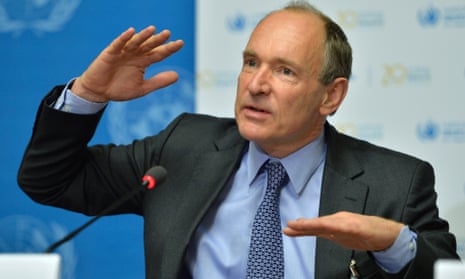The inventor of the web, Sir Tim Berners-Lee, has collaborated with more than 100 free speech groups and leading activists in an open letter to protest against the routine interception of data by governments around the world.
In the letter to the Open Government Partnership, the group condemns the hypocrisy of member nations in signing up to an organisation which aims to preserve freedom while at the same time running one of the largest surveillance networks the world has ever seen.
The organisations that have signed up include Oxfam, Privacy International and the Open Rights Group, and the individuals include Satbir Singh of the Commonwealth Human Rights Initiative and Indian social activist Aruna Roy.
The letter calls on member governments to overhaul their privacy laws, protect whistleblowers and increase the transparency around their surveillance mechanisms.
"We join other civil society organisations, human rights groups, academics and ordinary citizens in expressing our grave concern over allegations that governments around the world, including many OGP members, have been routinely intercepting and retaining the private communications of entire populations, in secret, without particularised warrants and with little or no meaningful oversight," the letter states.
"These practices erode the checks and balances on which accountability depends, and have a deeply chilling effect on freedom of expression, information and association, without which the ideals of open government have no meaning."
The letter underscores the difficulty the UK and USA have had in maintaining that countries like China and Iran should ease restrictions on the internet in the face of revelations from the NSA files that they themselves are intercepting private communications.
"Laws to limit the state’s power to spy on its citizens are fundamental to democracy’s checks and balances. But these laws are outdated," said Anne Jellema, the chief executive of the World Wide Web Foundation, which was founded by Berners-Lee to promote a free internet.
"With digital technologies making it trivially easy to collect and store billions of pieces of data on entire populations, and with public interest whistleblowers receiving little protection, the whole system of checks and balances on state power is being pushed dangerously close to breaking point," Jellema continued. "We are calling for an urgent public debate to review and strengthen the safeguards that will keep our societies open".
The Open Government Partnership was formed in 2011 to aid reformers committed to making their governments more accountable, open and responsive to citizens. The UK and USA were two of the first countries to join, and the partnership has since grown to include 62 nations from Australia to Mongolia.
